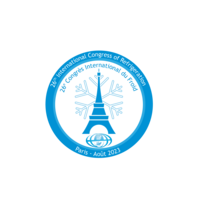
Document IIF
Production durable d’hydrolysats de protéines de poisson : architecture globale du système et empreinte.
Sustainable production of fish protein hydrolysates: overall system architecture and footprint.
Numéro : 0542
Auteurs : SHERMAN P. K., TOLSTOREBROV I., WIDELL K. N., HAFNER A.
Résumé
In this research work, the most efficient and energy-saving techniques for fish protein hydrolysates production were investigated from cradle-to-gate, in terms of overall cooling, heating, and energy demands. Advanced techniques for concentrating and drying the FPH was examined in detail to identify the process combinations with efficient energy use. The direct drying process consumes significant energy between 1.53 to 1.8 kWh kg-1 of water removal. Concentrating using freeze concentration, three stage evaporator and mechanical vapor recompression (MVR) before the drying process resulted a reduction in the overall energy and the CO2 emissions levels are calculated lower. The energy recovery solutions were investigated with integrated heat recovery using a transcritical two-stage CO2 system in Dymola & EES. The simulation results have the heat pump COP of 3.5. Integration of heat pumps with the spray dryer resulted significant energy reduction of up to 71.5 %. Finally, the economic assessment has been carried out.
Documents disponibles
Format PDF
Pages : 10
Disponible
Prix public
20 €
Prix membre*
Gratuit
* meilleur tarif applicable selon le type d'adhésion (voir le détail des avantages des adhésions individuelles et collectives)
Détails
- Titre original : Sustainable production of fish protein hydrolysates: overall system architecture and footprint.
- Identifiant de la fiche : 30031817
- Langues : Anglais
- Sujet : Technologie
- Source : Proceedings of the 26th IIR International Congress of Refrigeration: Paris , France, August 21-25, 2023.
- Date d'édition : 21/08/2023
- DOI : http://dx.doi.org/10.18462/iir.icr.2023.0542
Liens
Voir d'autres communications du même compte rendu (491)
Voir le compte rendu de la conférence
Indexation
-
Thèmes :
Efficacité energétique, économie d'énergie;
Poissons et produits de la mer;
Techniques des pompes à chaleur - Mots-clés : Économie d'energie; Application industrielle; Séchage; Simulation; Émission de CO2; Récuperation de chaleur; Calcul; Consommation d'énergie; Coût; Cycle transcritique; Système biétage; Pompe à chaleur; Protéine
-
Application of refrigeration technologies for e...
- Auteurs : SHERMAN P. K., TOLSTOREBROV I., WIDELL K. N., HAFNER A., NORDTVEDT T. S.
- Date : 11/04/2022
- Langues : Anglais
- Source : 7th IIR International Conference on Sustainability and the Cold Chain (Online). Proceedings: April 11-13 2022
- Formats : PDF
Voir la fiche
-
Green solutions to facilitate heat pump technol...
- Auteurs : HAN Y., ZHAO H., XIE Y.
- Date : 15/05/2023
- Langues : Anglais
- Source : 14th IEA Heat Pump Conference 2023, Chicago, Illinois.
- Formats : PDF
Voir la fiche
-
A study on the heat pump system for removing wh...
- Auteurs : ROH C., LEE G., LEE B., WANG E. S., BAIK Y. J., SHIN H.
- Date : 31/08/2021
- Langues : Anglais
- Source : 13th IEA Heat Pump Conference 2021: Heat Pumps – Mission for the Green World. Conference proceedings [full papers]
- Formats : PDF
Voir la fiche
-
Viabilidad técnico-económica de distintas tecno...
- Auteurs : HASSAN A. H., PAYÁ J., GÓMEZ-ELEGIDO D., LUCÁS-ALÓS P., SANJUAN V.
- Date : 26/06/2024
- Langues : Espagnol
- Source : 12th CYTEF Congress - Ibero-American Congress of Refrigeration Science and Technology.
- Formats : PDF
Voir la fiche
-
Digital twin of a full-scale industrial heat pu...
- Auteurs : ISPIR A. C., OTERO RODRIGUEZ G., DE VRIES W., SPEETJENS M.
- Date : 08/2024
- Langues : Anglais
- Source : 16th IIR-Gustav Lorentzen Conference on Natural Refrigerants (GL2024). Proceedings. University of Maryland, College Park, Maryland, USA, August 11-14 2024
- Formats : PDF
Voir la fiche
